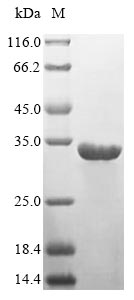Login
Registration enables users to use special features of this website, such as past
order histories, retained contact details for faster checkout, review submissions, and special promotions.
order histories, retained contact details for faster checkout, review submissions, and special promotions.
Forgot password?
Registration enables users to use special features of this website, such as past
order histories, retained contact details for faster checkout, review submissions, and special promotions.
order histories, retained contact details for faster checkout, review submissions, and special promotions.
Quick Order
Products
Antibodies
ELISA and Assay Kits
Research Areas
Infectious Disease
Resources
Purchasing
Reference Material
Contact Us
Location
Corporate Headquarters
Vector Laboratories, Inc.
6737 Mowry Ave
Newark, CA 94560
United States
Telephone Numbers
Customer Service: (800) 227-6666 / (650) 697-3600
Contact Us
Additional Contact Details
Login
Registration enables users to use special features of this website, such as past
order histories, retained contact details for faster checkout, review submissions, and special promotions.
order histories, retained contact details for faster checkout, review submissions, and special promotions.
Forgot password?
Registration enables users to use special features of this website, such as past
order histories, retained contact details for faster checkout, review submissions, and special promotions.
order histories, retained contact details for faster checkout, review submissions, and special promotions.
Quick Order
| Catalog Number | Size | Price |
|---|---|---|
| LS-G137275-20 | 20 µg | $323 |
| LS-G137275-100 | 100 µg | $420 |
| LS-G137275-1 | 1 mg | $1,355 |

Human HLA-DRA Protein (Recombinant 6His, N-terminus) (Full Length) - LS-G137275
Human HLA-DRA Protein (Recombinant 6His, N-terminus) (Full Length) - LS-G137275
Description:
HLA-DRA Protein LS-G137275 is a Recombinant Human HLA-DRA produced in E. coli 26-254aa with 6His, N-terminus tag(s). For Research Use Only
Toll Free North America
 (800) 227-6666
(800) 227-6666
For Research Use Only
Overview
Description:
HLA-DRA Protein LS-G137275 is a Recombinant Human HLA-DRA produced in E. coli 26-254aa with 6His, N-terminus tag(s). For Research Use Only
Specifications
Type
Recombinant Protein
Target
HLA-DRA
Synonyms
HLA-DRA | HLA-DRA1 | MHC cell surface glycoprotein | MHC class II antigen DRA | MLRW
Species
Human
Modifications
Unmodified
Conjugations
Unconjugated
Tag
6His, N-terminus
Region
26-254aa
Predicted Molecular Weight
30.0 kDa
AA Sequence
IKEEHVIIQAEFYLNPDQSGEFMFDFDGDEIFHVDMAKKETVWRLEEFGRFASFEAQGALANIAVDKANLEIMTKRSNYTPITNVPPEVTVLTNSPVELREPNVLICFIDKFTPPVVNVTWLRNGKPVTTGVSETVFLPREDHLFRKFHYLPFLPSTEDVYDCRVEHWGLDEPLLKHWEFDAPSPLPETTENVVCALGLTVGLVGIIIGTIFIIKGVRKSNAAERRGPL
Expression System
E. coli
Source Species
E. coli
Purification
Greater than 85% by SDS-PAGE
Usage Summary
Binds peptides derived from antigens that access the endocytic route of antigen presenting cells (APC) and presents them on the cell surface for recognition by the CD4 T-cells. The peptide binding cleft accommodates peptides of 10-30 residues. The peptides presented by MHC class II molecules are generated mostly by degradation of proteins that access the endocytic route, where they are processed by lysosomal proteases and other hydrolases. Exogenous antigens that have been endocytosed by the APC are thus readily available for presentation via MHC II molecules, and for this reason this antigen presentation pathway is usually referred to as exogenous. As membrane proteins on their way to degradation in lysosomes as part of their normal turn-over are also contained in the endosomal/lysosomal compartments, exogenous antigens must compete with those derived from endogenous components. Autophagy is also a source of endogenous peptides, autophagosomes constitutively fuse with MHC class II loading compartments. In addition to APCs, other cells of the gastrointestinal tract, such as epithelial cells, express MHC class II molecules and CD74 and act as APCs, which is an unusual trait of the GI tract. To produce a MHC class II molecule that presents an antigen, three MHC class II molecules (heterodimers of an alpha and a beta chain) associate with a CD74 trimer in the ER to form a heterononamer. Soon after the entry of this complex into the endosomal/lysosomal system where antigen processing occurs, CD74 undergoes a sequential degradation by various proteases, including CTSS and CTSL, leaving a small fragment termed CLIP (class-II-associated invariant chain peptide). The removal of CLIP is facilitated by HLA-DM via direct binding to the alpha-beta-CLIP complex so that CLIP is released. HLA-DM stabilizes MHC class II molecules until primary high affinity antigenic peptides are bound. The MHC II molecule bound to a peptide is then transported to the cell membrane surface. In B-cells, the interaction between HLA-DM and MHC class II molecules is regulated by HLA-DO. Primary dendritic cells (DCs) also to express HLA-DO. Lysosomal microenvironment has been implicated in the regulation of antigen loading into MHC II molecules, increased acidification produces increased proteolysis and efficient peptide loading.
Bio-Activity
Not Tested
Endotoxin
Not Tested
Presentation
Lyophilized from Tris, 50% Glycerol
Storage
Store at -80°C for up to 1 year. Avoid freeze-thaw cycles.
Restrictions
For research use only. Intended for use by laboratory professionals.
About HLA-DRA
Publications (0)
Customer Reviews (0)
Images
Sodium Dodecyl Sulfate - Polyacrylamide Gel Electrophoresis

(Tris-Glycine gel) Discontinuous SDS-PAGE (reduced) with 5% enrichment gel and 15% separation gel.
Sodium Dodecyl Sulfate - Polyacrylamide Gel Electrophoresis

(Tris-Glycine gel) Discontinuous SDS-PAGE (reduced) with 5% enrichment gel and 15% separation gel.
Sodium Dodecyl Sulfate - Polyacrylamide Gel Electrophoresis

(Tris-Glycine gel) Discontinuous SDS-PAGE (reduced) with 5% enrichment gel and 15% separation gel.
Sodium Dodecyl Sulfate - Polyacrylamide Gel Electrophoresis

(Tris-Glycine gel) Discontinuous SDS-PAGE (reduced) with 5% enrichment gel and 15% separation gel.
Popular HLA-DRA Proteins
Source:
Yeast
Tag:
6His, N-terminus
Source:
E. coli
Tag:
His, N-Terminal
Request SDS/MSDS
To request an SDS/MSDS form for this product, please contact our Technical Support department at:
Technical.Support@LSBio.com
Requested From: United States
Date Requested: 11/22/2024
Date Requested: 11/22/2024












